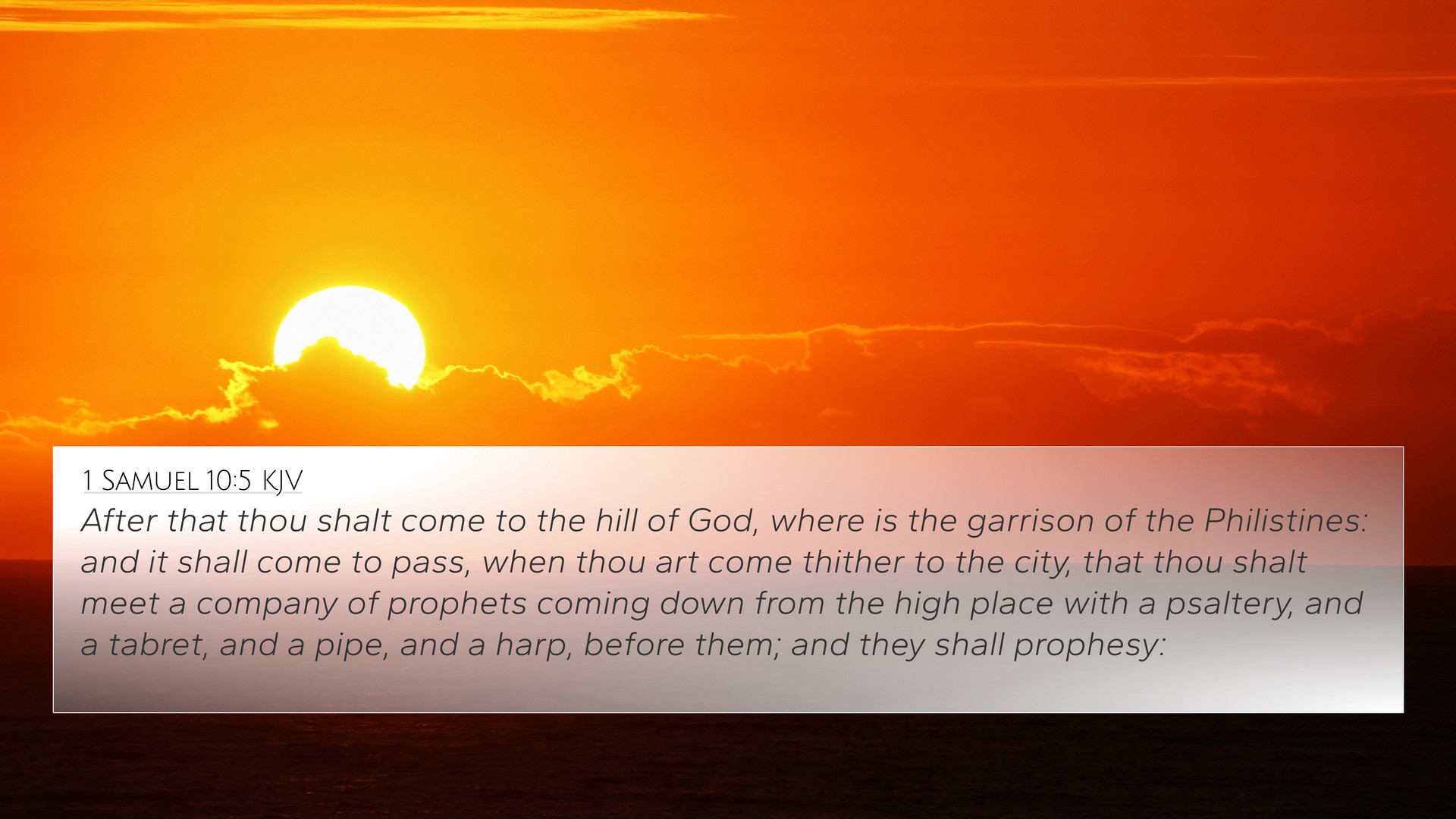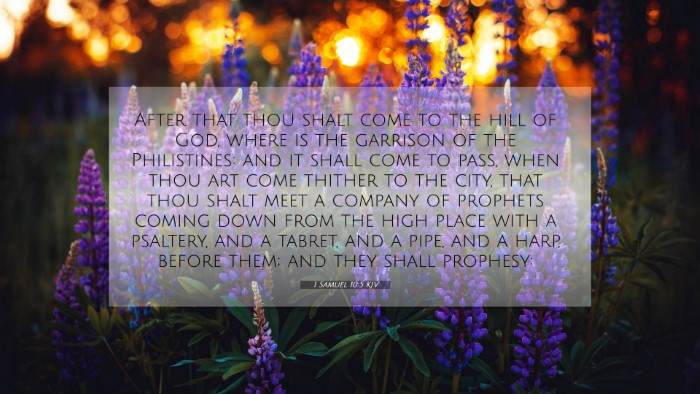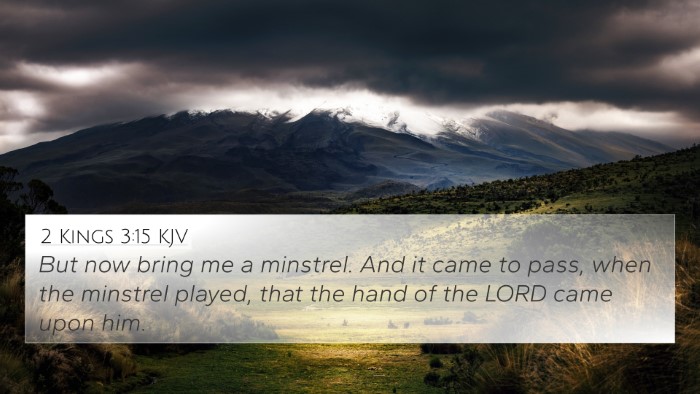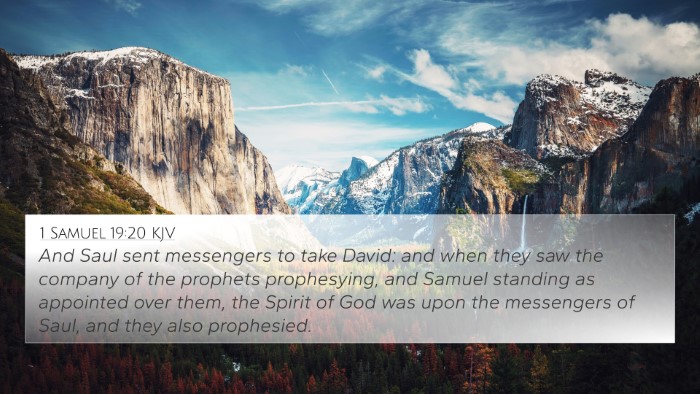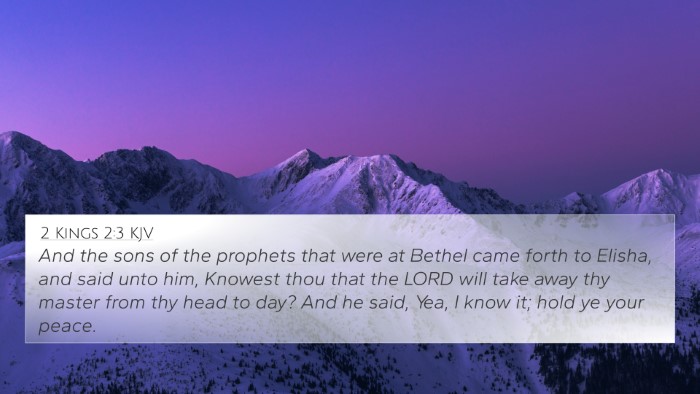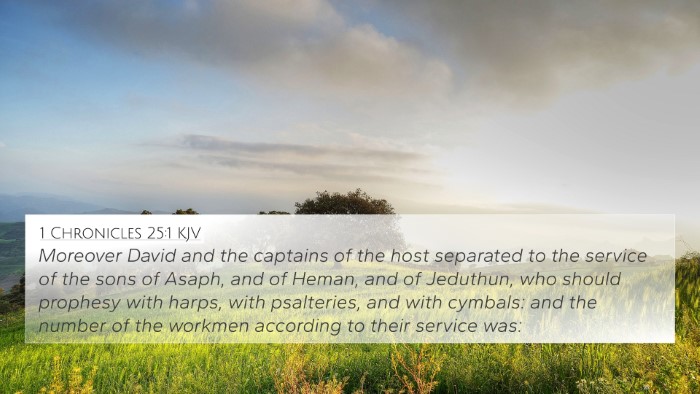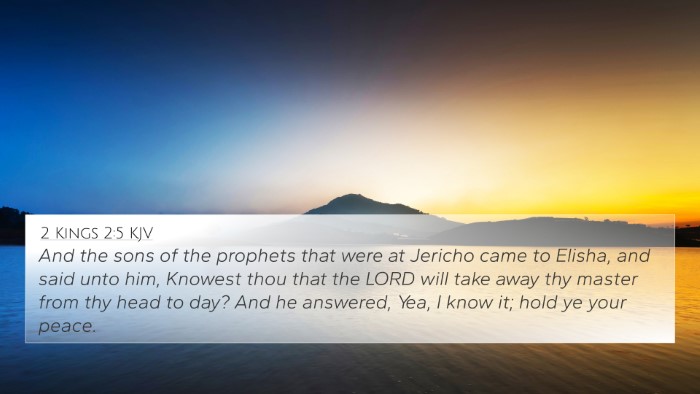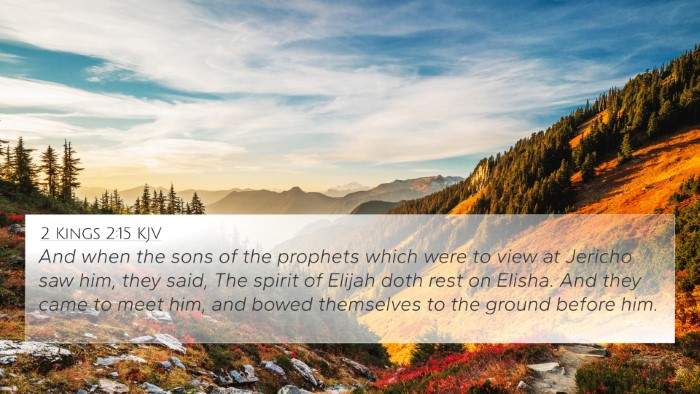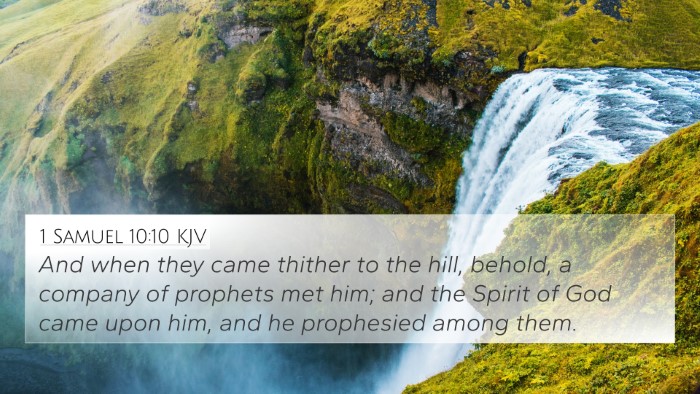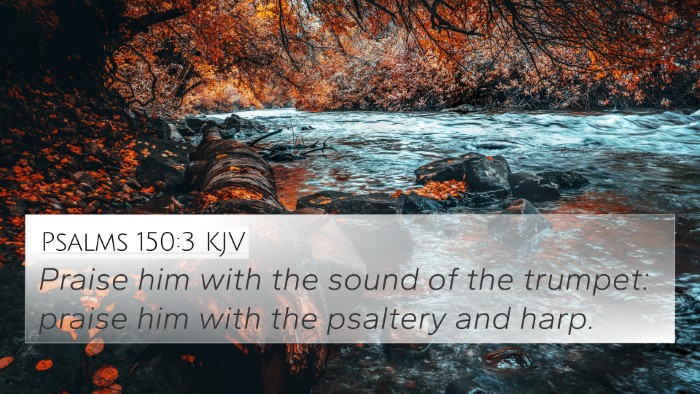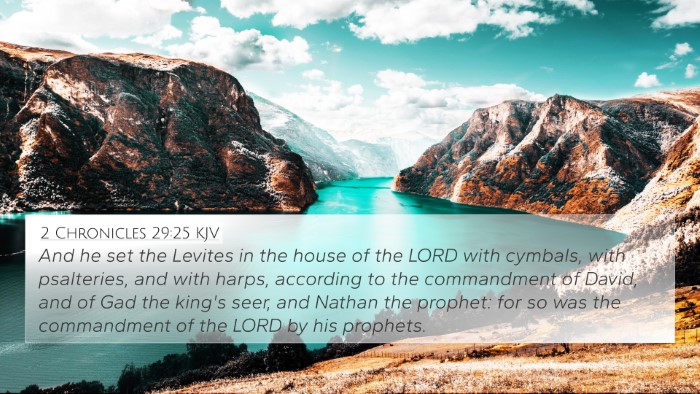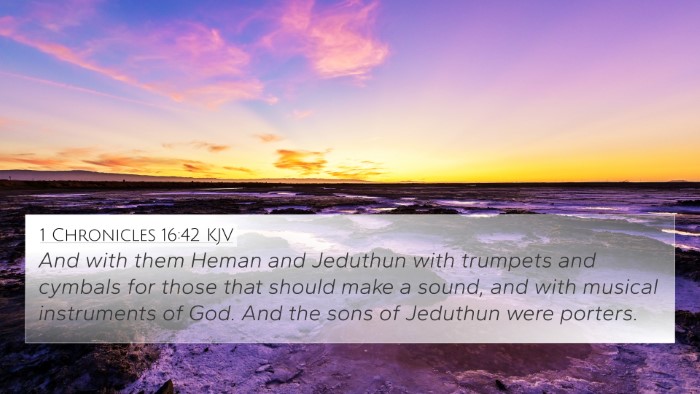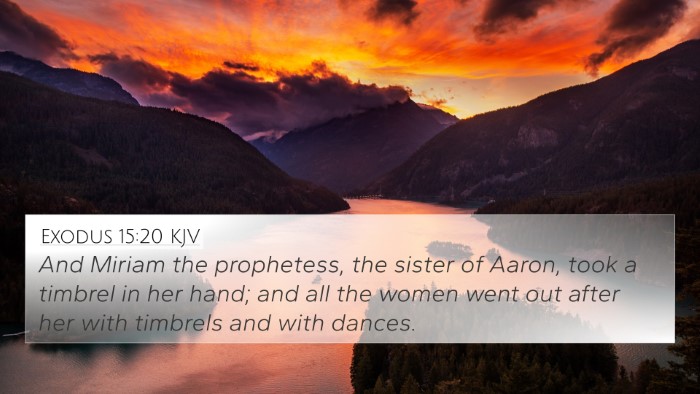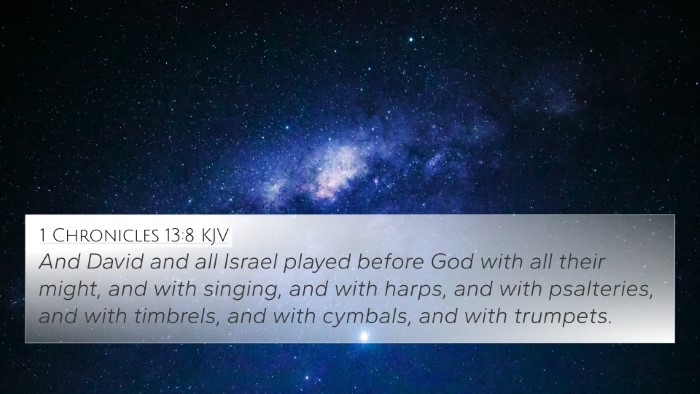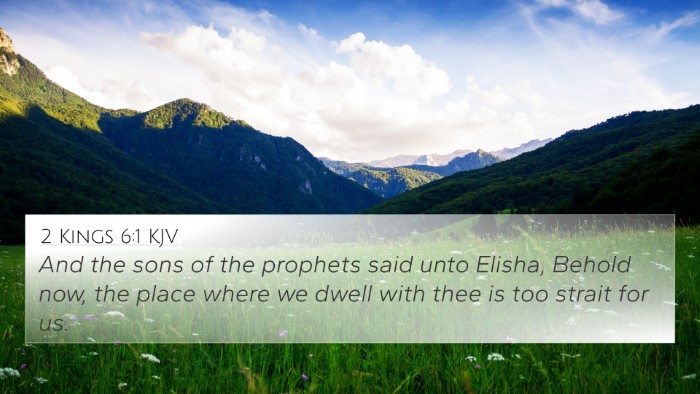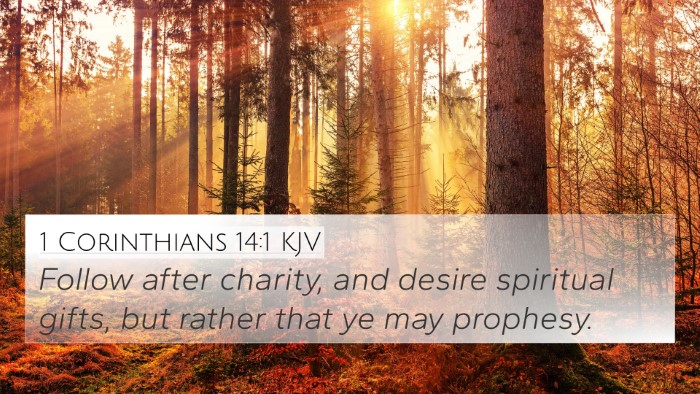Understanding 1 Samuel 10:5
1 Samuel 10:5 states: "After that, you shall come to Gibeath-elahim, where there is a garrison of the Philistines. And as you come there to the city, you will meet a group of prophets coming down from the high place with a harp, a tambourine, a flute, and a lyre before them; and they will be prophesying."
Verse Overview
This verse describes an event in the life of Saul, shortly after he is anointed as king of Israel. The significance of this encounter lies in the affirmation of Saul’s royal calling and establishment as God’s chosen leader.
Commentary Insights
Matthew Henry's Commentary
Henry emphasizes the divine orchestration in Saul's journey, highlighting that the encounter with the prophets serves as a confirmation of God's choice. He views the prophets as spiritual instruments meant to strengthen Saul in his emerging leadership role. The music they play symbolizes joy and divine inspiration, signifying that Saul is not entering a position of authority alone; rather, God is with him.
Albert Barnes' Notes on the Bible
Barnes points out the significance of the prophecy and the prophetic community as a crucial part of Israel's spiritual life. This verse illustrates the continuity of the prophetic tradition, showing that Saul will be empowered to lead not merely through politics but through spiritual anointing. The mention of musical instruments is significant as it connects worship to prophecy, indicating that worship is a means to receive God's revelation.
Adam Clarke's Commentary
Clarke elaborates on the fulfillment of prophetic signs. He notes that the coming of the prophets signifies Saul's entry into a prophetic role, suggesting a transformation will take place in his heart. Clarke connects this to the theme of God equipping leaders, stating that God empowers individuals for specific tasks and roles within the community of faith.
Cross-References and Inter-Biblical Dialogue
The following verses provide thematic connections with 1 Samuel 10:5:
- Acts 2:4 - The Spirit empowering individuals to speak and prophesy.
- 1 Samuel 10:6 - Saul being turned into a different man amidst prophets.
- Joel 2:28 - Prophecy as a sign of God's Spirit coming upon His people.
- 2 Chronicles 20:14 - The Spirit coming upon Jahaziel to prophesy to King Jehoshaphat.
- 1 Kings 19:19 - The calling of Elisha through a prophetic act.
- Romans 12:6-8 - The diversity of spiritual gifts, including prophecy.
- Ephesians 4:11-13 - God giving gifts to His Church for edification.
Thematic Connections
Connections Between Bible Verses
The cross-references illustrate a recurring theme of God empowering leaders through the prophetic tradition, emphasizing that leadership in biblical terms is deeply intertwined with spirituality and divine direction.
That God empowers leaders reappears in various instances throughout the Scriptures suggesting the importance of following God's calling, often accompanied by signs, such as music and prophecy.
Conclusion
1 Samuel 10:5 serves a pivotal role in affirming Saul's calling and illustrates the importance of the prophetic tradition in guiding and strengthening leaders within Israel. The interconnectedness of this verse with others reveals the thematic nature of divine empowerment and confirms the ongoing dialogue within Scripture regarding leadership, prophecy, and worship.
How to Use Bible Cross-References
Exploring cross-references provides deeper insights into Scripture, helping to understand the continuity and connections within the biblical narrative.
This practice illuminates how themes resonate throughout the Bible, creating a richer tapestry of understanding God’s will and guidance in our lives.
Closing Thoughts
As we meditate on 1 Samuel 10:5, let it encourage us to seek God's guidance in our own leadership roles, to understand the significance of prophetic direction, and to engage thoughtfully with Scripture through diligent study and cross-referencing.
